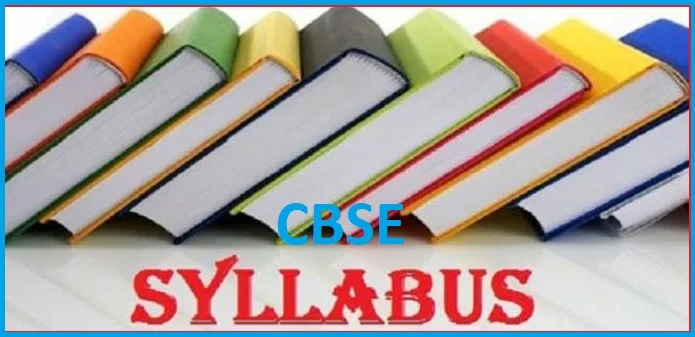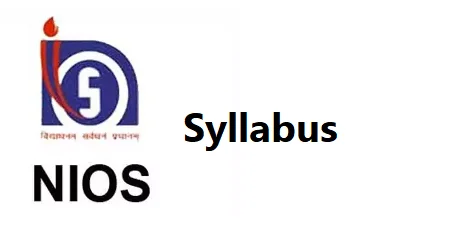CBSE Class 12 Political Science Syllabus 2024-25

In this article, we have shared the full CBSE class 12 political science syllabus 2024-25. In 2024, CBSE will conduct a single term CBSE class 12th exam and syllabus of the same has been prescribed below. You need to follow the latest syllabus for an ideal preparation.
CBSE Class 12 Political Science Syllabus 2024-25
Check below latest CBSE class 12 syllabus for political science:
| Units | Contents | Marks |
| 1 | The End of Bipolarity | 8 |
| 2 | New Centres of Power |
12 |
| 3 | Contemporary South Asia | |
| 4 | United Nations and its Organizations |
10 |
| 5 | Security in Contemporary World | |
| 6 | Environment and Natural Resources |
10 |
| 7 | Globalization | |
| Total | 40 |
Part B: Politics in India since Independence
| Units | Contents | Marks |
| 1 | Challenges of Nation-Building |
08 |
| 2 | Planned Development | |
| 3 | India’s Foreign Policy | 08 |
| 4 | Parties and Party System in India |
12 |
| 5 | Democratic Resurgence | |
| 6 | Regional Aspirations |
12 |
| 7 | Indian Politics: Recent Trends and Development | |
| Total | 40 |
CBSE Class 12 Political Science Syllabus 2024
| Part A: Contemporary World Politics | ||
| 1. | The End of Bipolarity
Disintegration of Soviet Union, Unipolar World, Middle East Crisis – Afghanistan, Gulf War, Democratic Politics and Democratization – CIS and the 21st Century (Arab Spring). |
22 Periods |
| 2 | New Centres of Power
Organizations: European Union, ASEAN, SAARC, BRICS. Nations: Russia, China, Israel, India, Japan and South Korea. |
18 Periods |
| 3 | Contemporary South Asia
Conflicts and efforts for Peace Democratization in South Asia: Pakistan, Nepal, Bangladesh, Sri Lanka, Maldives. |
18 Periods |
| 4 | United Nations and its Organizations
Principal Organs, Key Agencies: UNESCO, UNICEF, WHO, ILO, Security Council and the Need for its Expansion. |
10 Periods |
| 5 | Security in Contemporary World
Security: Meaning and Type; Terrorism. | 12 Periods |
| 6 | Environment and Natural Resources
Environmental Movements, Global Warming and Climate Change, Conservation of Natural Resources. |
12 Periods |
| 7 | Globalization
Globalization: Meaning, Manifestation and Debates. | 12 Periods |
| Part B: Politics in India since Independence | ||
| 1 | Challenges of Nation-Building
Nation and Nation Building. Sardar Vallabh Bhai Patel and Integration of States. Nehru’s approach to nation-building; Legacy of partition: challenge of ‘refugee’ Resettlement, the Kashmir problem. Political conflicts over language. Linguistic Organisation of States. |
16 Periods |
| 2 | Planned Development
Changing nature of India’s Economic Development Planning Commission and Five Year Plans, National Development Council, NITI Aayog. |
08 Periods |
| 3 | India’s Foreign Policy
Principles of Foreign Policy; India’s Changing Relations with Other Nations: US, Russia, China, Israel; India’s Relations with its Neighbours: Pakistan, Bangladesh, Bhutan, Nepal, Sri Lanka and Myanmar; India’s Nuclear Programme. |
20 Periods |
| 4 | Parties and Party System in India
One Party Dominance, Bi-Party System, Multi-Party Coalition System. |
30 Periods |
| 5 | Democratic Resurgence
Jaya Prakash Narayan and Total Revolution, Ram Manohar Lohia and Socialism, Pandit Deendayal Upadhyaya and Integral Humanism, National Emergency, Democratic Upsurges – Participation of the Adults, Backwards and Youth. | |
| 6 | Regional Aspirations
Rise of regional parties. Punjab Crisis. The Kashmir Issue, Movements for Autonomy. |
36 Periods |
| 7 | Indian Politics: Recent Trends and Development
Era of Coalitions, National Front, United Front, United Progressive Alliance (UPA) – I & II, National Democratic Alliance (NDA) I, II, III & IV, Issues of Development and Governance. | |
Download– Political Science syllabus pdf
Check- CBSE syllabus
